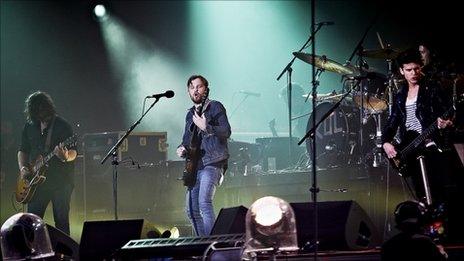Kings of Leon: 'We had to leave our comfort zone'
- Published
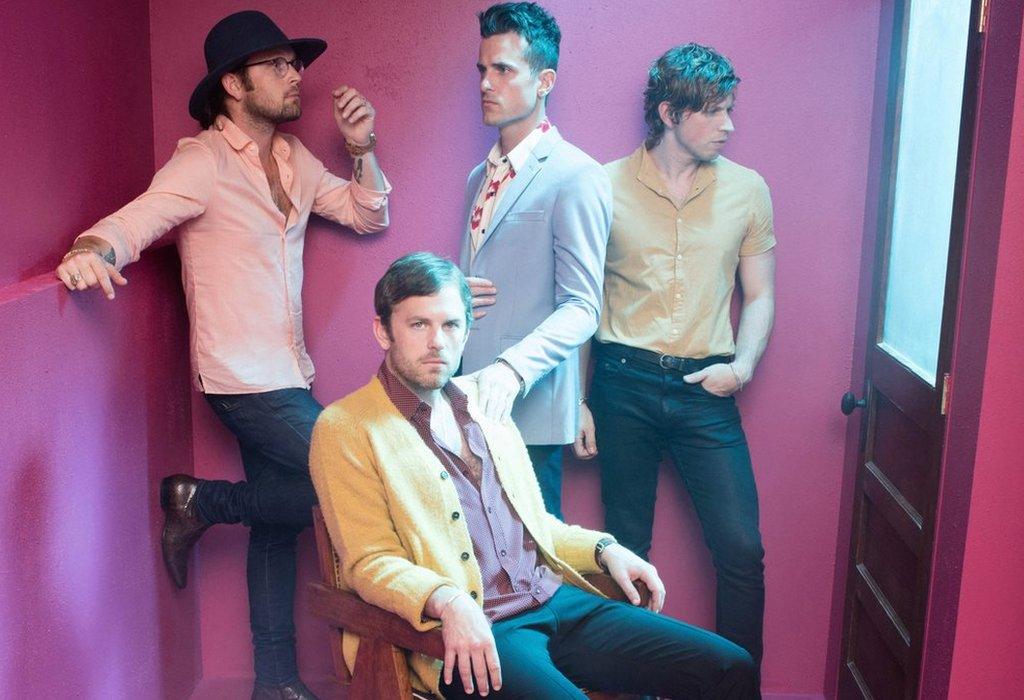
Kings of Leon are brothers Caleb (foreground), Nathan (top left) and Jared Followill (top centre) with their cousin Matt (top right) on guitar
After overcoming inter-band tensions and the disappointing sales of 2013 album Mechanical Bull, Kings Of Leon are back on form for their seventh record, Walls.
Deciding they'd settled into a "comfort zone", the southern state rockers ditched their producer, moved to LA, and hooked up with Markus Dravs - best known for his work with Arcade Fire and Florence + The Machine.
The German-born producer pushed the band hard - instructing them to play songs "like the Sex Pistols" and refusing to let them hear the results until the album was finished.
His methods seem to have worked. Released on Friday, Walls has gained the band their best reviews since 2008's Only By The Night, which included the global hits Sex On Fire and Use Somebody.
"They sound more focused and alive than they have for a while," wrote the NME, external, while Entertainment Weekly called the album "their richest, most textured effort yet, external".
"Everyone seems to be liking it, so we're excited to get the train rolling and get to touring this bad boy," says drummer Nathan Followill, speaking to the BBC from the band's base in Nashville.
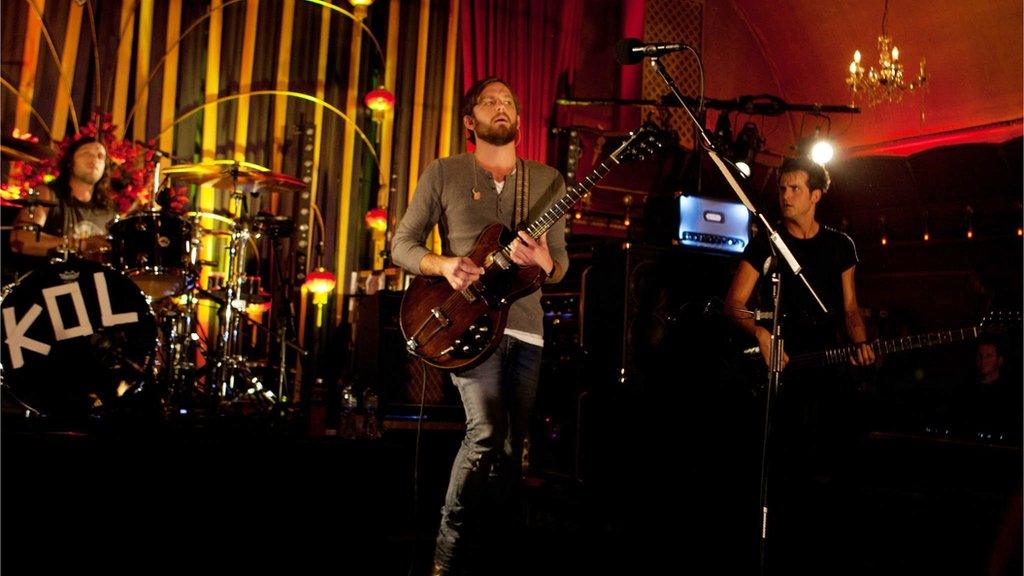
The group have won three Grammys and two Brit Awards since forming in 2000
Hello, Nathan. It's early morning over in Nashville. What have you been up to at this time?
I just dropped my baby girl off at school, then I'm gonna hit the gym and go to rehearsal.
Does your daughter still cling on to you at the school gates?
Nah, she's good. She didn't even look back at me when I was saying, "Have a good day today". I was a little depressed on the ride home, I'm not going to lie.
Five years ago, it looked like Kings of Leon were over. Caleb walked out of a gig, a tour was cancelled and you went on hiatus, then your comeback album stalled. Do you feel you've regained your underdog status?
Definitely. We were the underdogs right out of the gate. Our whole career, we were that guys that watched the bands we'd played with blow up. And we were all sitting back thinking, "We're playing 200 shows a year, we're putting in the work, but we're not reaping the benefits".
After the hiatus, there was an urgency to get another record out there and I think we went a little too quick. But that's the nature of the beast. You know, the labels want records and as a band you want records.
We had kind of settled into a comfort zone. We could have kept making records the same way, and I'm sure our diehard fans would have continued to buy them - but this record, we just wanted to throw everything out the window.
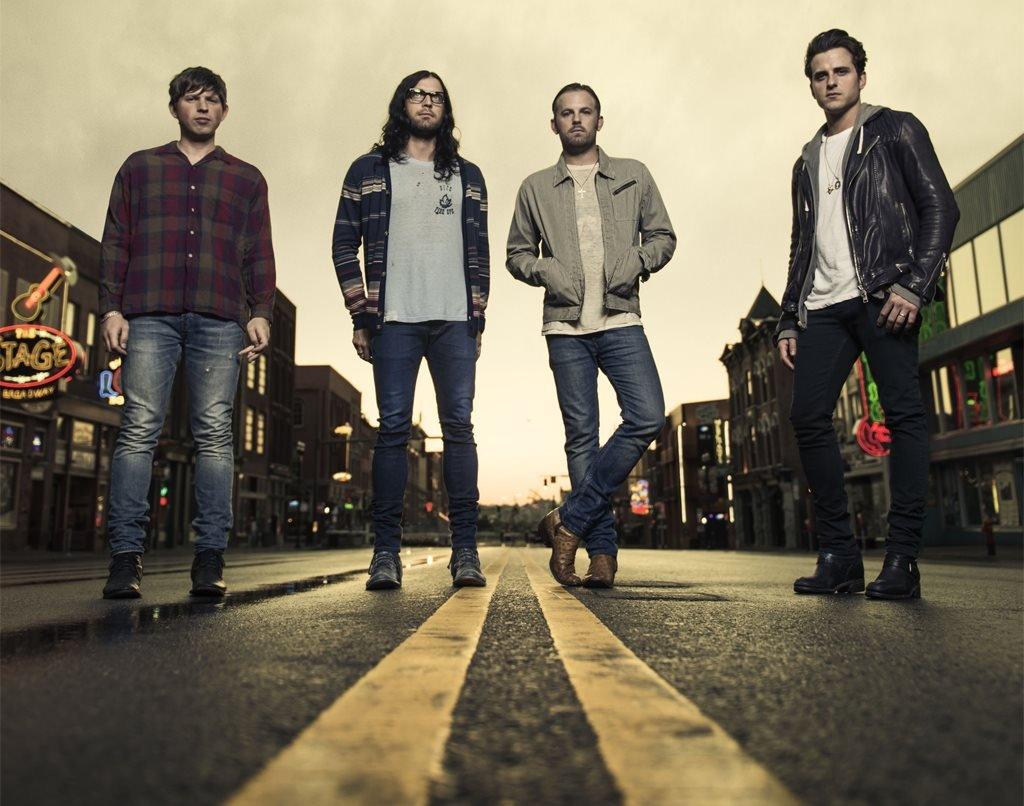
The band's hits include Sex On Fire, Molly's Chambers, The Bucket and Use Somebody
You've said Markus Dravs really shook things up in the studio. Were you nervous about working with him?
The first day of a record, you're always nervous and excited - but with a new producer, especially. So we were a little timid.
And in his defence, walking in with just a regular band can be intimidating, but when everyone in the band is related and has an opinion, I think that can be even scarier.
And was he really that bad?
I think there was a time early on where we realised it was going to be a lot of hard work - but once we all got on the same page, it was pretty much instant magic.
So what was his approach?
It could be something as simple as taking a song we were playing slow, and saying "OK, now how would the Sex Pistols play it?"
We were like, "You're out of your mind. We've been playing this slow for six months", and he said, "Just humour me". So we'd play it his way and listen back and go, "Damn, he's right. Again".
But, man, we hardly got to listen back to the music during the recording. He did not let us listen to it at all. He was like, "Just trust me, I've got the record in my head' and we were like, "Hopefully we'll get to hear it one day!"
Still friends?
I talk to Markus every week. Listen, we put the guy in hospital. He got pneumonia the first week, and was in hospital for a couple of days. So the fact that he rode it out and stuck with us, that meant a lot.
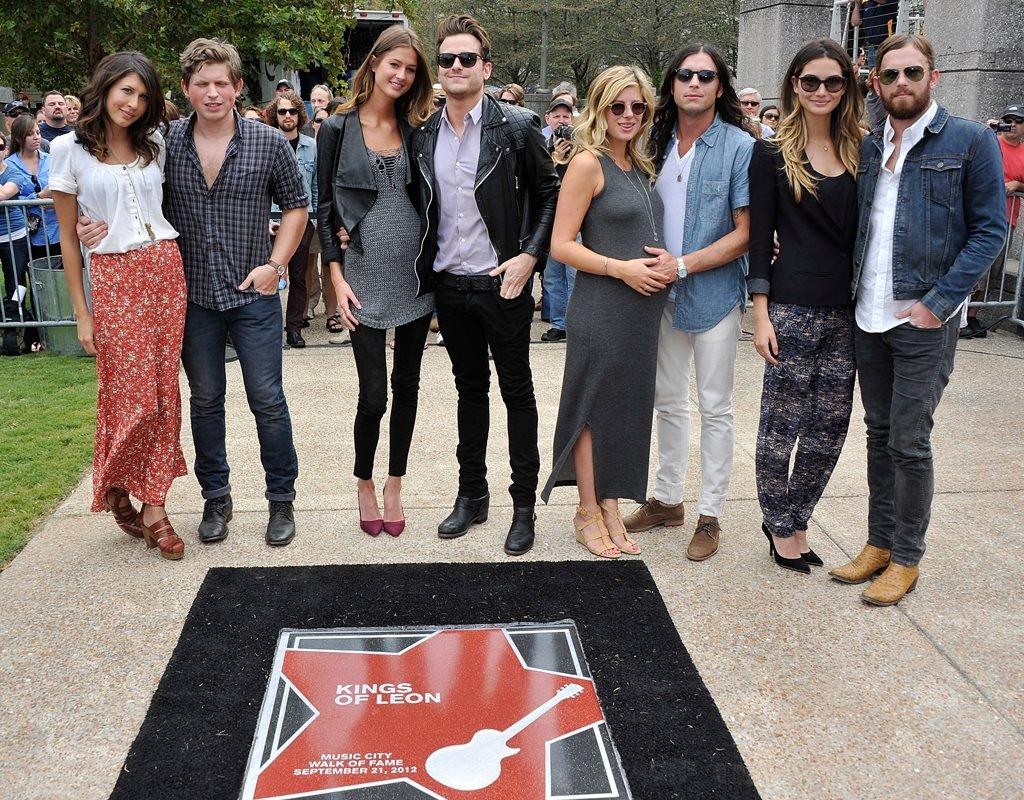
The band were given a star on Nashville's Music City Walk of Fame in 2012
The single, Around The World, external, is such an obvious radio hit. Do you deliberately seek out songs like that?
We definitely knew that had the potential to be a fun song for festivals. We play so many festivals that, when we make records, we kind of have that in the back of our minds.
Obviously, we were all smiling very big the day we recorded that one. All kinds of crazy things happened to get the sounds that are on that song. Some of the percussion is someone hitting a beer bottle with their wedding band.
Now, you say beer - but I read an interview with Caleb where he said it was a Perrier bottle. Who's telling the truth here?
Oh well, one man's Perrier is another man's beer!
Talking of percussion, the drums on Over are very intricate...
It's one of the hardest songs I've had ever to play! Most of those parts are just me goofing off, and then I'm like, "Oh crap, I'm going to have to play this every night for the next God knows how long".
Do you play to a click track [metronome] on stage?
No, never. I find that click tracks restrain me more than anything else. As long as you're speeding up together and slowing down together, nobody really notices.
There's a danger you'll sap the performance of energy...
I think it takes the emotion out of the song. We are all self-taught, so it's better for us to flow together. I've got buddies that play to a click every night and they're phenomenal, but it always seems to be missing that live magic, where anything can happen.
But I will say that we recorded one song on the album straight through, with no click track, and it came in at three minutes and 19 seconds. We played it one more time and it was identical: Three minutes and 19 seconds. Identical. So we're pretty good at locking it in.
That's in the studio. Live, with 100,000 people screaming, it's kind of impossible not to get the blood going, and you tend to speed everything up. It's a good problem to have.
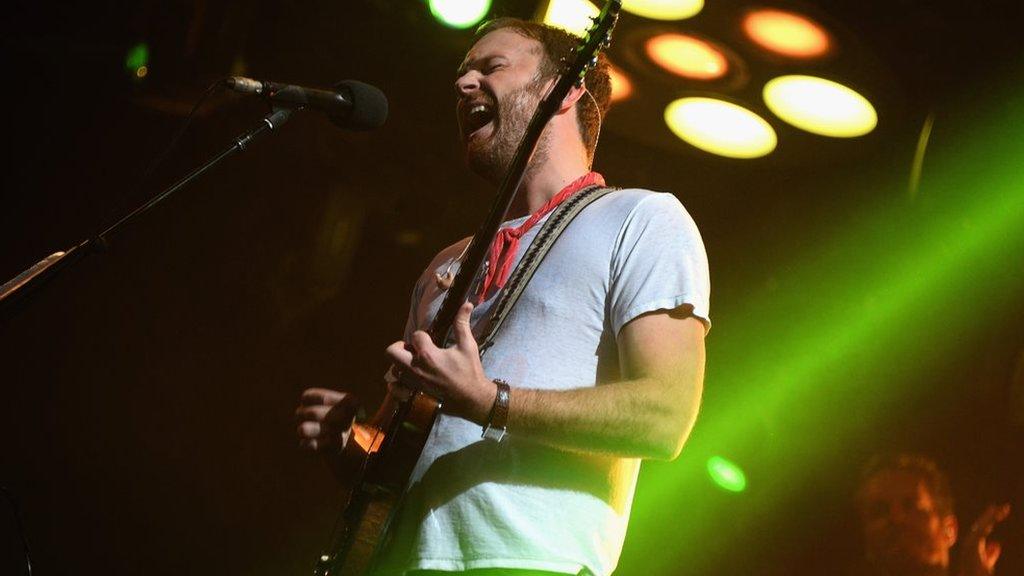
The band have announced a UK tour for 2017
It's been eight years since you headlined Glastonbury. Would you do it again?
Most definitely. We love Glastonbury. I think that was the first festival we ever played in Europe. Do they still do it where it's on one year, off one year to let the grass grow?
There's a break every couple of years. So it's on next year, but off in 2018.
OK, then we'll have to get on it in 2017. I'll have to text Mr Eavis.
Now that you're back as a band, have you taken steps to prevent a fall-out happening again?
Oh yeah. Anyone who has a brother - or a sister for that matter - you're going to have times where you argue and fight. But we're older now, we're more mature and we have families who rely on us. That's a good motivating factor.
I think that the Dallas gig was something that was probably going to happen. I would have preferred for it to happen behind closed doors and not in the middle of a show - but it had to happen for us to continue on. It was never as bad as it was put out there in the press. There was never any talk of us breaking up. Within a few weeks, we had already talked about getting together and jamming.
I'm glad it happened because it enabled us to take a step back and look at what was important to us musically, and what we want our legacy to be. I think this record is our redemption record. The Kings are back and playing fun music again.
Walls is out now on Columbia Records.

Follow us on Twitter @BBCNewsEnts, external, on Instagram at bbcnewsents, external, or if you have a story suggestion email entertainment.news@bbc.co.uk, external.

- Published26 July 2010
- Published2 August 2011
